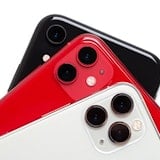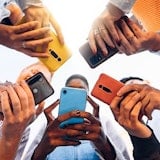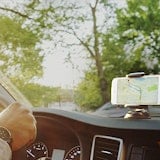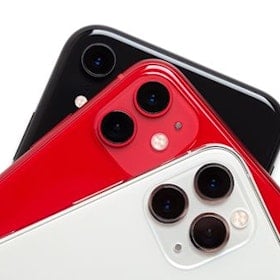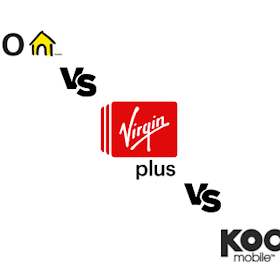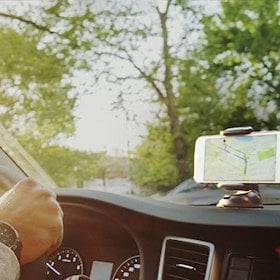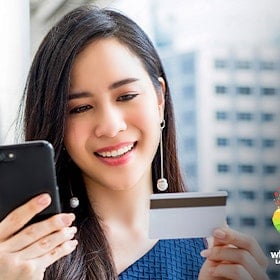The best phone for you may be the worst for someone else. That's why no one phone can be declared "the best." That new iPhone the pundits are declaring the "ultimate" device? While it may be perfect for the 40-something Apple enthusiast, it's wrong for the 20-something looking for a cheap option.
If you're looking to spend less time attached to your phone, then the latest and greatest smartphone might be the worst option for you. You're not alone: sales for feature phones (more often called "dumb phones") are on the rise, thanks to younger generations looking to detach from tech's attention-sucking grip.
So, what's the benefit of a smartphone? What is a dumb phone? We'll answer your questions and make some recommendations below so you can determine the best phone for you.
Smartphones vs. dumb phones
Whether you're thinking about moving from a smartphone to a dumb phone (otherwise known as a feature phone), or vice versa, this section lays out the basics between the two types of devices.

Smartphones are like miniature computers. They contain operating systems capable of running applications (apps), provide internet access, and feature touch screens.
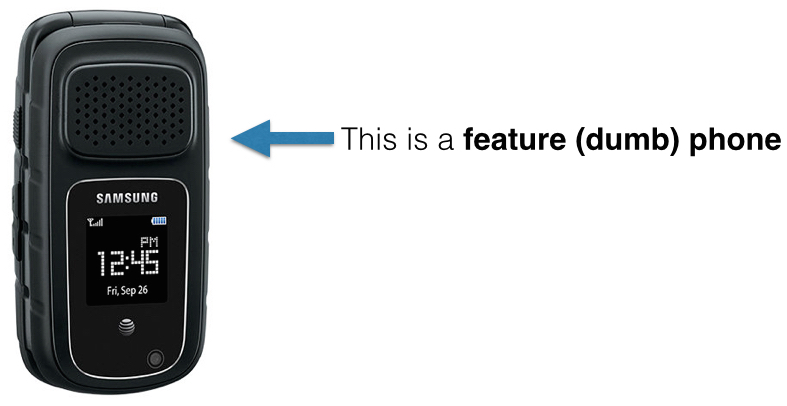
"Dumb" or feature phones don't have operating systems and do not provide a way to download apps. They also generally have fewer programming functions than smartphones. However, some of today's feature phones do have touch screens, cameras and, in some cases, pre-installed apps, closing the functionality gap with smartphones. As such, dumb phones are often great handsets for kids and teens.
Best dumb phones
Interested in finding the best dumb phone? We recommend the TCL Flip, a feature phone released in 2021 that provides all of the basic functionality you're looking for in your simpler life. The phone has 8GB of internal storage, which can be expanded to 128GB, so you'll have plenty of storage for your vintage-looking photos. Speaking of photos, the Flip has a 2MP rear camera that also allows for 480p video capturing and 1080p playback. Not too shabby for a supposedly basic phone!
The Alcatel GO FLIP 3is another contender for the best dumb phone in Canada. The phone is a few years older than the TCL Flip, though it's still a strong and practical device, with up to 32GB of storage, a 2MP rear camera, and 720p video recording.
Best smartphones
You'll be hard-pressed to find a smartphone more appealing than the iPhone 14. In our review of the handset, we were impressed by its 6.1" display and its advanced dual-camera system, which features two 12MP Ultra Wide and 12MP Wide lenses on the front along with a 12MP TrueDepth lens on the rear.
The iPhone's not the only game in town. Androids offer excellent processing and (often) cheaper sticker prices. That's certainly the case with the Google Pixel 7a, a dynamic smartphone that offers powerful processing (thanks to its Google Tensor G2 chip), a beautiful 6.1" OLED display, and a battery that lasts up to 72 hours.
If you're looking to go big, the Samsung Galaxy S23 is your best bet. The device boasts a 6.1" Gorilla Glass display, a 50MP Wide camera lens (along with three others), and a long-lasting battery.
iPhones vs. Android phones
You're interested in a smartphone but don't know where to begin. Lucky for you, we love talking about this stuff.

iPhones
The iPhone likely needs no introduction. These devices have revolutionized—or perhaps better stated, partly created—the smartphone market. If you're a lifelong Apple user, or even if you're simply enchanted with these magnificent devices, you probably already know a lot about them, or own one.
As for whether the iPhone is for you, the first thing you'll need to ask yourself is whether you are willing to fork over the money for one, as they're among the most expensive devices on the market. However, the latest editions are consistently rated the top smartphones out there, with a staggering universe of apps, a great camera and intuitive interface features. You really get a lot for the money.

Androids
Android phones are the majority of the smartphone market—around 87% in 2016. There are hundreds to choose from, at a variety of price points. This alone makes Android an attractive option for many—there are a diversity of phones, with a diversity of strengths, at a diversity of prices.
Operating system
The most noticeable difference between an iPhone and an Android is the operating system. iPhones use Apple's iOS. iPhone 14 has the latest, with iOS 16. Androids use Android OS. The Google Pixel 7a has the latest, with Android 13.
Having said this, where the Android OS runs into trouble sometimes is in its compatibility with certain phones. Whereas iOS was specifically designed for iPhones and works seamlessly on them, Android pops up on a vast array of devices, and is occasionally buggy on particular ones. Make sure you research the handset you're interested in before buying it, to ensure that Android works well on it.
Price
As mentioned, iPhones are among the most expensive devices on the market, and you'll be in it for a good chunk of money if you buy a new/current model. The iPhone 14 has an MSRP of $1,099 in Canada. The iPhone 14 Pro, a premium version of the handset, goes for $1,399.
Android, by contrast, is available on a wide spectrum of handsets, at a great many price points. Current generation flagship devices like the Google Pixel 7a cost under $600 and are often on sale. That's not to say all Androids are cheap; premium devices like the Samsung Galaxy Z Fold goes for over $3,000.
Voice assistance
Siri gets a lot of publicity, and with good reason: she's an excellent voice assistant, and one of the pioneering examples of this technology. However, Google and others have taken this tech and run with it, and these virtual assistants easily equal, if not outdo, Siri.

Take Google Assistant. It responds quickly to the voice prompts and seems to intuitively grasp what you're asking for, whether it's directions or a text message to your spouse. Siri has trouble with certain phrasing and often presents unneeded results. Regardless, they're both very useful.
Switching between Android and iOS
Don't let your fear of switching over to Android or iOS dissuade you from choosing a particular device. It's not a whole lot more difficult than transferring from another Android phone or iPhone. Google Drive is your friend in this process, allowing you to transfer photos and contacts. Check out our guide to transferring contacts from Android to iPhone, and vice versa. Apps, unfortunately, do not travel between systems, so you'll need to repurchase them on your new phone.
There are plenty of resources out there to show you how to do all of this, so rest assured that you'll be able to keep everything, apps notwithstanding when you move from system to system.
Choosing a smartphone
- Size: When it comes to smartphones, bigger isn't always better. Samsung helped popularize the "phablet" (combination phone and tablet), and Apple followed suit with their iPhone Plus versions. Having a screen of this size can be nice for performing all manner of streaming and browsing tasks, reducing eye strain in the process. However, large phones are not always pocket-friendly and are a bit more awkward to bring along on your runs, bike rides, and other exercise-related activities.

- Brand: While several lesser-known cell phone manufacturers are doing great things, sometimes it's best to go with a company that has a proven track record.
- Camera: Generally speaking, flagship phones from device makers like Apple, Google, and Samsung feature the best cameras on the market, with up to 12-megapixels. However, some of the slightly less expensive phones like the Huawei Honor 8 and the Moto G4 also feature excellent cameras, and let's not forget older generation phones like the iPhone 5S. If taking high-quality photos is important to you, there are a range of excellent options out there today.
Should I buy a smartphone or a dumb phone?
If you're trying to determine the best choice for your next phone, consider the following:
- Price: Feature phones tend to be dramatically less expensive than smartphones. In fact, you can pick one up for free just by signing up for certain plans. Smartphones, of course, tend to be comparatively pricy, though there are some very affordable Android models. Also adding to the cost of smartphones, comparatively speaking, are the phone plans for them; you'll want a plan that includes enough data for your streaming, browsing, and application needs. Data is less of a concern when it comes to feature phones.
- Durability: Smartphones have touchscreen displays that by nature are fairly delicate, regardless of how strong the glass is touted to be. Feature phones are more durable simply by virtue of the fact that there tends to be less glass to break. Also, if something happens to your feature phone, it's a lot less expensive to replace it.
- Web Browsing: Web browsing on feature phones—if it's even available—tends to be a chore. Anybody who can recall trying to surf the web on their phones circa 2005 will have a pretty good idea of what it's like. Smartphone makers, by contrast, treat web browsing as a core function of their devices and work to optimize it for their users.
- Camera: Camera quality improves with each new generation of smartphone. The difference between smartphone cameras and professional ones is growing narrower by the year. Feature phone cameras have also seen steady improvement, though their quality is still markedly shy of the ones in smartphones. If high-quality photographs are a chief concern, you'll probably want to spring for a smartphone.
- Mapping: The ability to download and use mapping apps is a crucial feature of smartphones. Thanks to Google Maps, Waze, and Apple Maps, it's become a whole lot easier to find places without a bunch of MapQuest printouts. If you've never relied on the Google Maps app, you probably can't relate to what you're missing; however, if you're thinking about moving from a smartphone to a feature phone, there's a chance you'll miss mapping dearly.
- Keyboard: Remember punching numbers on a keyboard several times to get the desired letter you needed for a text message? Thanks to the touchscreen keyboards that come standard on smartphones, that experience is a thing of the past. . . unless you buy a feature phone. Many still have these analog-style keyboards, which may prove frustrating if you're used to the smartphone experience.
- Coverage: Since feature phones have less sophisticated built-in radio technology, they may not be equipped to access the latest network spectrums put out by carriers. As a result, coverage on feature phones can be inferior to that of smartphones.
- Freedom: If you define freedom as being untethered to screens, feature phones will indeed help you become more "free." Just think of the built-in excuses a feature phone provides: "I'm sorry I didn't get to your email, I had to wait until I was in front of a computer screen again," or "I didn't respond to your Facebook post right away because I don't have that app on my phone," or "I appreciate the long text; my response was short because typing on my phone is a chore." If you're seeking a life free of constant tech entanglement, feature phones can be the answer. Before taking the plunge, however, it's worth asking yourself whether, in the absence of a smartphone, you'll simply ramp up your time in front of other screens, like your laptop or tablet.
Related Articles
Related Topics
Cell Phones smartphonesPopular Topics
Android Apple iPhone Samsung Google iOS Cell phone plans Rogers Telus BellFind Better Phones and Plans
Hundreds of cell phone plans unpacked. All the facts. No surprises.


 Modern flip device with dual color displays, 2.8" internal display, 2MP camera, 1.3GHz Quad-core CPU, 4G LTE connectivity
Modern flip device with dual color displays, 2.8" internal display, 2MP camera, 1.3GHz Quad-core CPU, 4G LTE connectivity









 Basic flip phone with 2.8 inches QVGA display, 2MP camera, Quad-core CPU, 4G LTE connectivity and Google Assistant
Basic flip phone with 2.8 inches QVGA display, 2MP camera, Quad-core CPU, 4G LTE connectivity and Google Assistant



 Apple's 2022 model featuring new dual camera system with improved technology for low light photos, increased battery life, access to emergency services via satellite, and recycled gold wiring
Apple's 2022 model featuring new dual camera system with improved technology for low light photos, increased battery life, access to emergency services via satellite, and recycled gold wiring






 Samsung’s 2023 Galaxy series phone with the fastest processor available, upgraded cameras with improved Night Mode and flaw detection, and super-smooth 120Hz screen refresh
Samsung’s 2023 Galaxy series phone with the fastest processor available, upgraded cameras with improved Night Mode and flaw detection, and super-smooth 120Hz screen refresh

